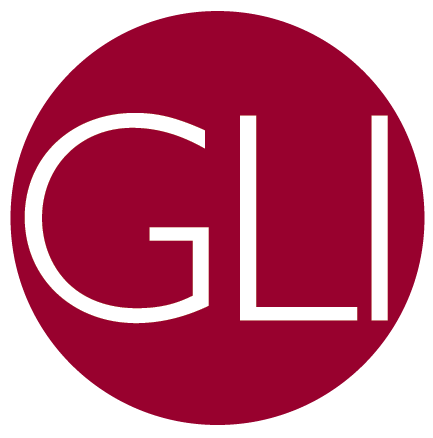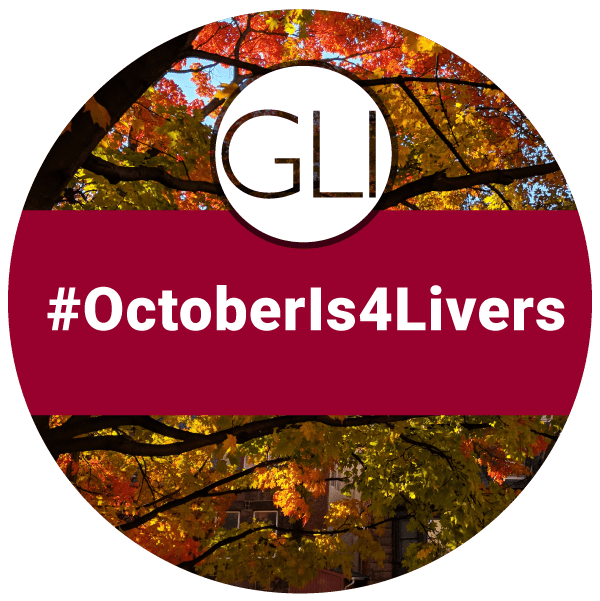

POLICY PERSPECTIVE
Each year tens of thousands of people hear the words “You have liver cancer” and sadly these numbers are increasing, unlike many other cancers.
The statistics are frightening and staggering, and the trends may paint a picture that seems insurmountable, but they also provide an opportunity. According to the American Cancer Society 70% of liver cancer cases could be prevented. We also know that obesity, nonalcoholic steatohepatitis (NASH), the opioid epidemic, and HBV are all critical drivers in the rise of liver cancer. A disease that is interconnected in so many ways, and known to be preventable, provides an opportunity to collaborate with our colleagues, peers, and experts in other disease states.
To answer the call of all impacted by liver cancer, we must collaborate and commit to improving liver cancer outcomes. One voice is never as effective as many united behind a single cause.
October is Liver Cancer Awareness Month, an annual national awareness campaign centered around raising the voices of those impacted by liver cancer, showing the importance of liver cancer screening and prevention, and examining the future of the liver cancer landscape worldwide.
This year we are excited to announce many initiatives that will generate awareness and inform the public about liver cancer. Whether it is consistent social media engagement, radio media tours or a patient fly in and Capitol Hill Briefing, we plan a multi-pronged campaign to draw attention to liver cancer and its trends. Most importantly our initiatives will work with our fellow peers to teach the public about the importance of screening and prevention, raise the voices of those impacted by liver cancer, and examine the future of the liver cancer landscape worldwide.
To open the month we, along with many others, will be excited to release a global liver cancer proclamation announcing our aggressive and attainable goal of doubling the five-year survival rate from liver cancer to 36% by 2030.
If you are interested in joining us in this pledge, please click here to sign on.
To close the month, we plan an educational Capitol Hill Briefing titled, Liver Cancer Drivers and Disparities. In collaboration with Congresswoman Nydia Velázquez (NY), the briefing will use the LIVER Act (HR 3016) as the linchpin to focus the conversation about liver disease, liver cancer, and October’s Liver Cancer Awareness month. The briefing’s panel will emphasize how increasing liver disease/cancer research, awareness/preventative measures, and modernizing systems currently in place can can make a real difference and address key disparities in this disease.
We greatly appreciate Congresswoman Velázquez’s leadership on this critical piece of legislation, and look forward to collaborating with our fellow patient advocacy organizations like the Hepatitis B Foundation, on this important briefing. The briefing will take place in Cannon House Office Building from 10:30-12:00PM on October 31st. Please stay tuned for more details on the briefing.
Overall as we move into October we could not be more excited to work together to elevate the interests and issues of liver cancer patients, and put liver cancer in its proper place on the global health agenda commensurate with its prevalence and impact.
Our October education and awareness campaign, #OctoberIs4Livers, marks the first of many future opportunities that GLI will create to change the narrative and outcomes of liver cancers.

Donna R. Cryer, JD
President & CEO
Global Liver Institute

OPEN ADVOCACY OPPORTUNITIES
“Request to Connect” – A New Way for Patients to Connect with FDA
The FDA Patient Affairs Staff has announced the FDA “Request to Connect” portal is now live
This new patient portal gives patients and caregivers a single entry point to the agency for questions and meeting requests.

POLICY DEVELOPMENTS AT GLI

GLI’s Advanced Advocacy Academy (A3) Class of 2019
A3 2019 will take place on November 1-2, 2019 at GLI Headquarters in Washington, DC. An additional “Hill Day” has been added for A3 alumni. This year’s program will offer liver patients, caregivers, and professionals the opportunity to learn from experts in the fields of drug development, clinical trials, state and federal legislation, media and communications, and liver health and disease. Participants will learn public speaking, media and project skills, including forming support groups. Email a3@globalliver.org with any questions.

#OctoberIs4Livers
October is Liver Cancer Awareness Month! GLI is promoting awareness and action with a month-long campaign to bring patients, survivors, caregivers, advocates, and experts together across all social media platforms. Each week in October, #OctoberIs4Livers focuses on a different topic in the liver cancer journey. And every day we are tweeting about liver cancer so be sure to follow us and join in this lively and informative discussion as we work together.
Our #OctoberIs4Livers calendar and website will provide you with resources and tools to become engaged in our activities and events.
GLI Joins HAP and DDNC
This past month GLI has joined multiple organizations to continue our collaborative efforts to increase the voice of all impacted by liver disease.
The Hepatitis Appropriations Partnership (HAP), a national coalition based in Washington, D.C. that includes community-based organizations, public health and provider associations, national hepatitis and HIV organizations and diagnostic, pharmaceutical and biotechnology companies from all over the country. HAP works with federal policy makers in Congress and the Executive branch and with public health officials to increase federal support and funding for hepatitis prevention, testing, education, research, surveillance, and treatment.
The Digestive Disease National Coalition (DDNC) is an advocacy organization comprised of the major national voluntary and professional societies concerned with digestive diseases. The DDNC focuses on improving public policy and increasing public awareness with respect to diseases of the digestive system.
GLI Signs onto Donor Expense Reimbursement Appropriations Letter
This summer, President Trump issued an Executive Order removing regulatory barriers to the federal government reimbursing living organ donors for their lost wages and other expenses. GLI and our colleagues in the organ donation and transplantation field are thrilled to see this initiative, which will increase transplants and reduce taxpayer spending on dialysis costs by eliminating the financial burden faced by people so generous as to give a vital organ to save someone they care about.
We wrote in support of ensuring adequate funds are appropriated in FY2020 so that this important policy change can be implemented.
GLI Endorses H.R. 3107, “Improving Seniors Timely Access to Care Act.”
The letter was signed by more than 370 national and state patient, provider, and other health care stakeholder organizations
H.R. 3107 seeks to streamline and standardize prior authorization under the Medicare Advantage program and protect patients from unnecessary delays in care. The legislation will provide much-needed oversight and transparency of health insurance for America’s seniors.
GLI Signs onto Letter Supporting CDC’s REACH Program
Racial and Ethnic Approaches to Community Health (REACH) is one of the only community health programs funded by the CDC that is specifically dedicated to fund urban, rural, and tribal communities working to lessen and eliminate racial and ethnic health disparities. The organizations that signed-on in support of REACH are working to ensure that healthy opportunities are available to all individuals regardless of race, ethnicity, or socioeconomic status through the REACH program.
GLI Signs onto FY2021 Follow-up Letter to OMB
GLI and the Hepatitis Appropriations Partnership (HAP) urged the Office of Management and Budget (OMB) to increase funding for national viral hepatitis programs at the Centers for Disease Control and Prevention (CDC) in the Administration’s budget request for fiscal year (FY) 2021.
Prioritizing funding for the viral hepatitis programs at the CDC will permit the agency to build the infrastructure and programs necessary to prevent new viral hepatitis cases; identify people living with viral hepatitis, and link them to care and treatment. It will also encourage work with health care providers and insurers to improve access to screening and treatment; prioritize interventions among people who use drugs and improve surveillance and outbreak response; increase adult HBV vaccination rates and continue to improve infant HBV immunization rates; prevent mother-to-child transmission of HBV and HCV; and improve prevention efforts through research and technical assistance.

FOR YOUR CALENDAR
Cardiometabolic Health Congress (CMHC) Oct 10-13, Chicago
American Academy of Ophthalmology Annual Meeting Oct. 12-15, San Francisco
American College of Chest Physicians (CHEST) Annual Meeting Oct. 19-23, New Orleans
3rd NASH Summit EU October 23-25 London
American Academy of Pediatrics (AAP) Annual Meeting Oct. 26-29, New Orleans
American College of Gastroenterology (ACG) Annual Meeting Oct 25-30, San Antonio
NCI Liver Cancer Program: Special Conference on Tumor Metabolism October 28-29, Bethesda
Academy of Managed Care Pharmacy (Both annual meeting and AMCP Nexus) (Oct 29-Nov 1), National Harbor
Global Liver Institute Advanced Advocacy Academy, November 1-2, Washington
American Public Health Association Annual Meeting November 2-6, Philadelphia
Obesity Week Nov 3-7, Las Vegas
American Society of Nephrology—KIDNEY WEEK (ASN) Nov. 5-10, Washington DC
American Association for the Study of Liver Disease, The Liver Meeting November 8-12, Boston
American College of Allergy, Asthma, & Immunology Annual Meeting Nov. 7-11, Houston
American College of Rheumatology (ACR) Annual Meeting Nov. 8-13, Atlanta
American Heart Association (AHA) Scientific Sessions Nov 16-18, Philadelphia
Scottsdale Headache Symposium Nov 21-24, Scottsdale
GLOBAL NEWS
Global Vaccination Summit
This event took place on September 12th under the joint auspices of the European Commission President Jean Claude Juncker and WHO Director General Tedros Adhanom Ghebreyesus.
This one-day event aimed to bring together political leaders, representatives from the UN and other international organizations, health ministries, leading academics, scientists and health professionals, the private sector, social media influencers, and NGOs.
The Summit’s goal was to propel global action against vaccine preventable diseases and against the spread of vaccine misinformation. Its purpose was to demonstrate EU leadership for vaccination, boost political commitment towards eliminating vaccine preventable diseases, and engage political leaders and leaders from scientific, medical, industry, philanthropic, digital media and civil society.
WHO Classification of Tumours. Digestive System Tumours. Fifth Edition
This past month the WHO revised its Classification of Digestive System Tumours and published its Fifth Edition (2019).
This series (also known as the WHO Blue Books) is regarded as the gold standard for the diagnosis of tumours and comprises a unique synthesis of histopathological diagnosis with digital and molecular pathology. These authoritative and concise reference books provide international standards for healthcare professionals involved in the care of patients with cancer or in cancer research, underpinning individual patient treatment as well as research into all aspects of cancer causation, prevention, therapy, and education.
European Research and Innovation Days
This past month GLI attended the European Research and Innovation Days event. It is the first annual policy event of the European Commission bringing together stakeholders to debate and shape the future research and innovation landscape. The event aimed to mobilise EU citizens and increase awareness of how important research and innovation are addressing the challenges that face society.
U.S. NEWS
Liver Disease Highlights from the Senate’s Labor-HHS-Education Spending Bill
The spending bill provides a total of $42.1 billion for the NIH in FY 2020, including the full $492 million through the 21st Century Cures Act.
This total funding level would represent a $3 billion or 7.7% increase over the comparable FY 2019 funding level. This compares to the House-passed $41.1 billion (a $2 billion or 5.1% increase over FY 2019).
The Senate’s spending bill also included a few crucial liver disease sections that show the growing positive national momentum around the liver thanks to the actions of GLI and our colleagues in the liver disease community. For example, the Senate followed the House version released earlier this year and included an ask of CDC to formalize their efforts for NASH, and an acknowledgment of the rising concerns and need for attention given liver disease and liver cancer. Please click here for the full liver disease language.;
New tool for healthcare providers to combat obesity in primary care settings
Healthcare practitioners and researchers have a new tool to combat obesity in primary care settings, according to a study published in Obesity, the flagship journal of The Obesity Society.
In 2011, the Centers for Medicare and Medicaid Services (CMS) began covering intensive behavioral therapy (IBT) for obesity when provided to qualified beneficiaries in primary care settings. The benefit provides weekly, brief (15 minute) visits the first month, followed by every-other week visits in months 2-6. Patients who lose 3 kg (6.6 lb) at month 6 are eligible for monthly brief (15 minute) visits in months 7-12 to facilitate weight loss maintenance. This sums to a maximum of 22 possible visits in 1 year.
However, CMS has not provided an evidence-based treatment manual for physicians and other qualified practitioners to use in delivering IBT to patients. A Protocol to Deliver Intensive Behavioral Therapy (IBT) for Obesity in Primary Care Settings: The MODEL‐IBT Program provides practitioners access to a 21-session treatment manual, which is modeled on the schedule of visits recommended by CMS.
U.S. Federal Budget Update
With the end of the federal fiscal year on September 30th, Congress still has their work cut out for them to finalize the 12 annual spending bills. The battle is currently taking place on the Senate side of Capitol Hill. Earlier this year the House passed 10 out of its 12 funding bills however, many of them include Democratic priorities meaning they won’t get taken up as is by the Republican controlled Senate.
On September 19th, to prevent a government shutdown the House of Representatives passed the Continuing Appropriations Act, 2020, and Health Extenders Act of 2019, a continuing resolution (CR) which temporarily extends the FY 2019 funding levels for discretionary spending. The Senate is expected to consider the legislation the week of September 23rd. If passed by the Senate, the bill would also require the president’s signature before October 1 to avert a government shutdown. The hope of having everything completed by November 21st may be a tall order.
U.S. House of Representatives Speaker Releases Drug Pricing Plan
This past month House Speaker Nancy Pelosi presented a Democrats drug pricing plan, calling for Medicare to negotiate prices on at least 25 medicines, with an option for commercial insurers to take advantage of the deals.
NCI Releases FY 2021 Plan and Budget Proposal
The National Cancer Institute September 4 released its FY 2020 annual plan and budget proposal. The plan provides an assessment of the challenges and opportunities before the cancer research community and shares the impact of the NCI-supported research on people’s lives through patient and researcher stories. Most importantly the proposal highlights NCI’s liver cancer efforts, and underlines the attention needed towards all liver cancers.
NIH-Funded Research Increases Storage Time of Human Donor Livers
NIH issued a news release on September 9th presenting new research supported by NIBIB and NIDDK which permits human livers to be preserved for up to 27 hours before transplantation into a donor, an increase of 18 hours over current methods.
CDC Releases 2019 National Viral Hepatitis Progress Report
U.S. Centers for Disease Control and Prevention (CDC) published an online 2019 National Viral Hepatitis Progress Report to share trends in viral hepatitis vaccination efforts, and disease incidence and mortality. This annual report measures the nation’s progress in preventing and controlling viral hepatitis and updates the 2018 National Viral Hepatitis Progress Report.
Patient Quality of Life Coalition Releases 2019 State-by-State Report Card on Access to Palliative Care in Our Nation’s Hospitals
The Patient Quality of Life Coalition hosted the briefing, “2019 State-by-State Report Card on Access to Palliative Care in Our Nation’s Hospitals,” on September 26, in cooperation with the Senate Comprehensive Care Caucus discussed the release of the State-by-State Report Card by the Center to Advance Palliative Care and the National Palliative Care Research Center. The Report Card provides an analysis of whether seriously ill patients in the U.S. are receiving equitable access to palliative care services in hospitals.

GRANT OPPORTUNITIES
Epidemiologic Research on Emerging Risk Factors and Liver Cancer Susceptibility. Funding available from NIH Application Deadlines: May 7th, 2021.
Conquer Cancer®, the ASCO Foundation, has awarded more than $126 million through nearly 2,100 grants and awards to medical students, trainees, young scientists, and oncologists at all stages of their careers. Many of their funding opportunities are currently accepting applications. While eligibility criteria differ for each award, all grants require that applicants be a member of ASCO to apply. Join ASCO and to submit a grant application.

NAMES TO KNOW
Stephen Hahn, a radiation oncologist and chief medical executive at MD Anderson in Houston, is in line to be nominated to head the FDA within the next several weeks, pending completion of a successful background check. The Trump administration is facing a Nov. 1 deadline for nominating a permanent commissioner. Hahn had been considered alongside acting FDA chief Norman “Ned” Sharpless and Harvard professor Alexa Boer Kimball. The White House and HHS did not immediately respond to a request for comment, and the sources with knowledge of the process cautioned that Trump could still change his mind.
TERMS TO KNOW
Chairman’s Mark – A chairman’s mark is the first draft of legislation introduced by the chairman of a committee or subcommittee that is then debated and amended by committee colleagues. This ability to decide the starting point for all further work on a piece of legislation is an important part of the chair’s power.
FURTHER READING
New EU Commission
WHO’s first-ever Health Equity Status Report
EU Health Technology Assessment Legislation
